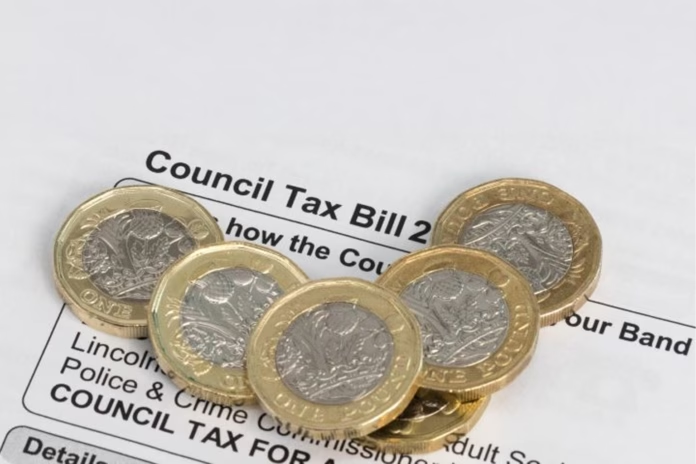The local government finance policy statement is “not a panacea” for the difficult time that lies ahead for councils, CIPFA’s acting head of policy has said.
The statement from the Department for Levelling Up, Housing and Communities (DLUHC), released ahead of the local government finance settlement, outlined the plans for council finance in England over the next two years. It included measures to increase the Revenue Support Grant in line with the consumer price index and a 3% rise in local authorities’ core spending power.
In response to the statement, Joanne Pitt, said: “The additional certainty in the settlement is welcome, but it’s not a panacea for the difficult time ahead.”
The measures announced by DLUHC stated that in “recognition of the inflationary pressures across the sector” the department will repurpose the Lower Tier Services Grant and a proportion of the expired New Homes Bonus legacy payment, which will create a “funding guarantee”.
“This will ensure that all authorities will see at least a 3% increase in their core spending power before any decision they make about organisational efficiencies, use of reserves and council tax levels,” the policy paper said.
Levelling up secretary Michael Gove added: “Local government has long called for greater certainty on funding following repeated one-year settlements, greater local control of finances and a focus on social care. This two-year policy statement delivers on all of these fronts.
The government estimates that, on average, councils will see an increase of around 9% in their funding next year.
Unless inflation disappears overnight, this policy statement confirms councils will experience real-terms cuts in the coming years.
Statement for stability
Chris Tambini, president of the Society of County Treasurers, broadly welcomed the proposals in the statement given that they reflected a better-than-expected Autumn Statement for local government. However, he expressed disappointment that the fair funding review will be delayed until the next parliament.
“It feels like the government is seeking stability, and not wanting to rock the boat in any way. Whilst this is understandable, it is disappointing that the fair funding review is a casualty,” said Tambini, who is the director of corporate resources at Leicestershire County Council.
“Even given the extra funding, the next few years will remain very tough for councils, with significant savings required to achieve balanced budgets.”
Flexibilities on council tax for 2024/25
In his Autumn Statement, chancellor Jeremy Hunt announced that local authorities will be able to increase council tax by up to 3% per year in 2023/24 without a referendum, with councils that have social care responsibilities able to increase their council tax by an additional 2% per year.
The finance policy statement outlined that these council tax principles will similarly apply for 2024/25. It also confirmed other measures announced in the Autumn Statement, including the £2.8bn of additional funding for adult social care in 2023/24 and £4.7bn for the following year.
In response to DLUHC’s statement, Sir Stephen Houghton, chair of the Special Interest Group of Municipal Authorities said: “Unless inflation disappears overnight, this policy statement confirms councils will experience real-terms cuts in the coming years.
“Assumed council tax increases will do a lot of heavy lifting, and so while it is welcome that the social care precept will be equalised against it, it is disappointing that there will not be equalisation for the full 5%.”
In the statement, DLUHC encouraged “local authorities to consider how they can use their reserves to maintain services in the face of immediate inflationary pressures”. The government also outlined that it would consult with “trusted partners”, including the Local Government Association, on releasing data on reserves held by councils.
Pitt added: “While we fully support the need for transparency and a better understanding of reserves, it’s important to remember that reserves, by their very nature, can only be used once as they are not a sustainable income stream.
“I would be particularly keen to understand the plans that the DLUHC has for the revenue outturns forms, as these might present an opportunity to improve data collection. This would help with understanding why the reserves exist and the important role they play within the local government finance system.”
The system remains broken, and the Department for Education continues to be very slow coming up with reforms that will fix it. In the meantime, deficits will continue to grow.
‘Necessary’ DSG override
The policy paper also included an extension of the statutory override for councils’ Dedicated Schools Grant (DSG) for three years.
Carl Les, finance spokesperson for the County Councils Network, said that this was a necessary step. “The scale of the deficits accrued by local authorities as a result of external factors could be crippling for councils. But the override is not a panacea – we need to work with the government to find a long-term solution through a combination of deficit write off and reform.”
According to Tambini: “The system remains broken, and the Department for Education continues to be very slow coming up with reforms that will fix it. In the meantime, deficits will continue to grow.”
The finance policy statement stated that the government will provide details on these proposals at the provisional local government finance settlement for 2023/24, including full local authority level allocations for 2023/24, later this month.
—————
FREE weekly newsletters
Subscribe to Room151 Newsletters
Room151 LinkedIn Community
Join here
Monthly Online Treasury Briefing
Sign up here with a .gov.uk email address
Room151 Webinars
Visit the Room151 channel












